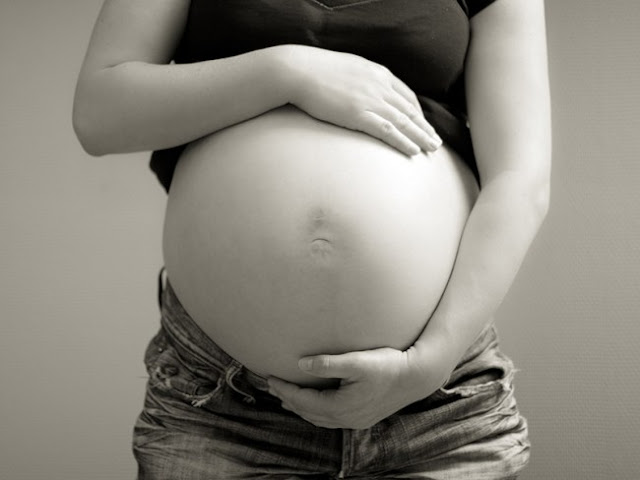Home News Article Exposure To Air Pollution During Pregnancy Ups Asthma Risk In Babies
Exposure To Air Pollution During Pregnancy Ups Asthma Risk In Babies
Kath C. Eustaquio-Derla September 30, 2017 0
10 February 2016, 3:25 am EST By Katherine Derla Tech Times
Pregnant women exposed to polluted air are at high risk of giving birth to children who might develop asthma before the age of 5. Researchers suggest steering clear of busy roads or checking air quality before heading out for physical activities. ( Torsten Mangner | Flickr )
Women should steer clear of air pollution during their pregnancy as this could increase asthma risk in babies. These children have higher chances of developing asthma before reaching 5 years old.
Researchers analyzed more than 65,000 children to see the association between asthma and their mothers' exposure to air pollution during pregnancy. The children were monitored for 10 years wherein cases of clinically diagnosed asthma were tracked.
The mothers' exposure to air pollution was determined by numerous factors, including major roads and the cities' monitored smog levels. The team focused on traffic-related air contaminants, including nitric oxide, nitrogen oxide, black carbon and fine particulate matter.
The findings, published in the European Respiratory Journal, suggested that the mothers' exposure to traffic-related air pollution during their pregnancy increases the asthma risks in babies during their first five years. The findings are universal, because the spike in possible asthma development is found even in cities where the air pollution levels are comparatively low.
Children whose mothers lived near freeways during their pregnancy carried the highest risks for asthma at 25 percent. Moreover, babies who were born premature had the highest risk.
"Our study results highlight the importance of exposure to pollution while babies are still in the womb," said lead author Hind Sbihi from the University of British Columbia.
Sbihi suggested several measures to lower the risks of asthma in babies during the mothers' pregnancy. The installation of high-efficiency particulate air (HEPA) filters at home can help, as well as staying clear of busy roads when taking a leisurely stroll. Pregnant women can also check air quality online before heading out and saving outside physical activities until air quality levels improve.
"These research findings suggest pollution isn't only harming people alive today, but is impacting on the future health of the country," said British Lung Foundation's Chief Executive Dr. Penny Woods.
European Lung Foundation Chair Dan Smyth stressed that air pollution is affecting 100 percent of the population. A big chunk of the population in Europe is living in residential areas with polluted outdoor air. There is a need to increase the public's awareness on the dangers of air pollution especially among pregnant women.
Photo: Torsten Mangner | Flickr
Pregnant women exposed to polluted air are at high risk of giving birth to children who might develop asthma before the age of 5. Researchers suggest steering clear of busy roads or checking air quality before heading out for physical activities. ( Torsten Mangner | Flickr )
Women should steer clear of air pollution during their pregnancy as this could increase asthma risk in babies. These children have higher chances of developing asthma before reaching 5 years old.
Researchers analyzed more than 65,000 children to see the association between asthma and their mothers' exposure to air pollution during pregnancy. The children were monitored for 10 years wherein cases of clinically diagnosed asthma were tracked.
The mothers' exposure to air pollution was determined by numerous factors, including major roads and the cities' monitored smog levels. The team focused on traffic-related air contaminants, including nitric oxide, nitrogen oxide, black carbon and fine particulate matter.
The findings, published in the European Respiratory Journal, suggested that the mothers' exposure to traffic-related air pollution during their pregnancy increases the asthma risks in babies during their first five years. The findings are universal, because the spike in possible asthma development is found even in cities where the air pollution levels are comparatively low.
Children whose mothers lived near freeways during their pregnancy carried the highest risks for asthma at 25 percent. Moreover, babies who were born premature had the highest risk.
"Our study results highlight the importance of exposure to pollution while babies are still in the womb," said lead author Hind Sbihi from the University of British Columbia.
Sbihi suggested several measures to lower the risks of asthma in babies during the mothers' pregnancy. The installation of high-efficiency particulate air (HEPA) filters at home can help, as well as staying clear of busy roads when taking a leisurely stroll. Pregnant women can also check air quality online before heading out and saving outside physical activities until air quality levels improve.
"These research findings suggest pollution isn't only harming people alive today, but is impacting on the future health of the country," said British Lung Foundation's Chief Executive Dr. Penny Woods.
European Lung Foundation Chair Dan Smyth stressed that air pollution is affecting 100 percent of the population. A big chunk of the population in Europe is living in residential areas with polluted outdoor air. There is a need to increase the public's awareness on the dangers of air pollution especially among pregnant women.
Photo: Torsten Mangner | Flickr











